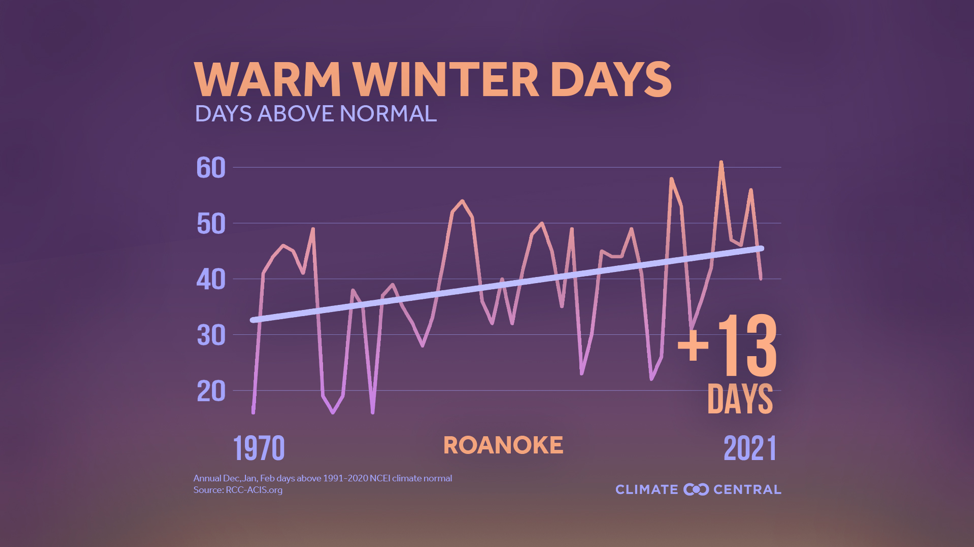Tune In to Changes in Winter Weather
What’s your favorite winter-themed song? "Coldest Winter" by Kanye West? "Winter Marches On" by Duran Duran? "Early Winter" by Gwen Stefani? "Winter Time" by Steve Miller Band? "Wintertime Love" by The Doors? "Winter" by Tori Amos? "Winter Things" by Ariana Grande? "My Love Is Winter" by The Smashing Pumpkins? "The Winter" by Cake? "Winter" by TV on the Radio? "Winter in My Heart" by The Avett Brothers? Wow. That's a lot of songs about winter.
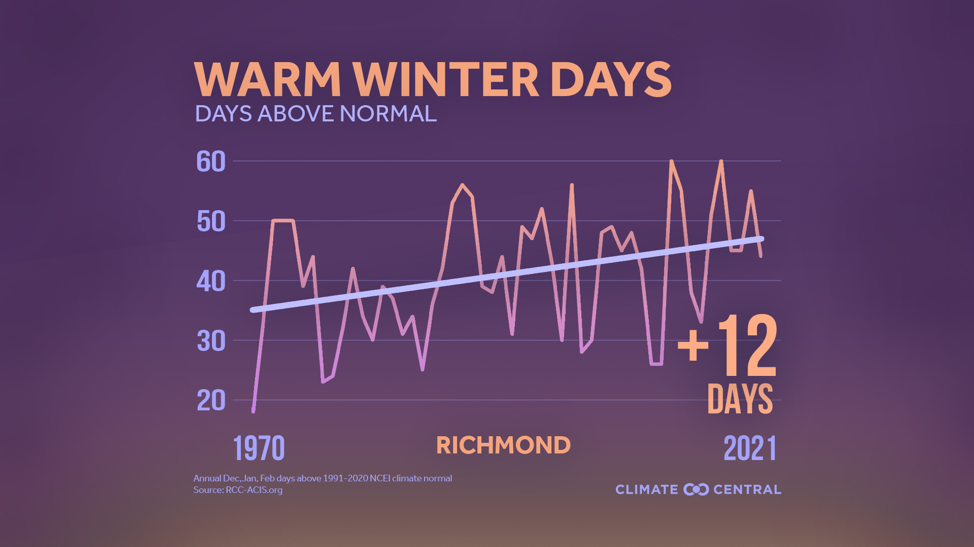
Whatever your go-to tune may be, go ahead and hit play now as meteorological winter starts today, December 1, and lasts until the end of February.
While winter is our coldest season here in Virginia—as with anywhere else in the northern hemisphere because we’re tilted away from the sun—it’s not quite as frigid as it used to be.
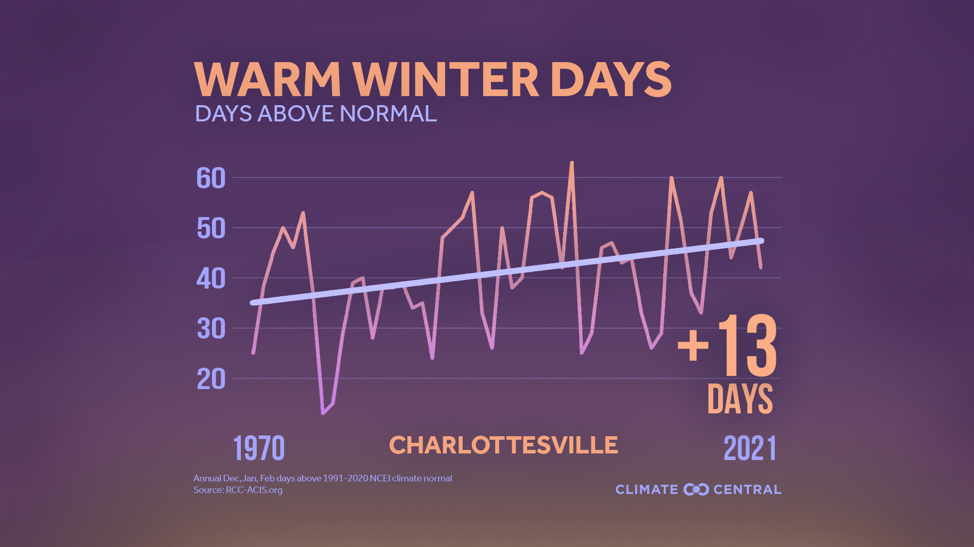
Our colleagues at Climate Central crunched the numbers on the seasonal amount of days that were warmer than the “normal” (30-year average from 1991-2020) or expected temperature on that date since 1970.
Here in Richmond, we experience about 12 more days per winter season that have above normal temperatures when compared to 1970. We see similar patterns of warmer-than-normal days in winter across Virginia, from +7 days in Harrisonburg to as much as +13 days in Charlottesville and Roanoke.
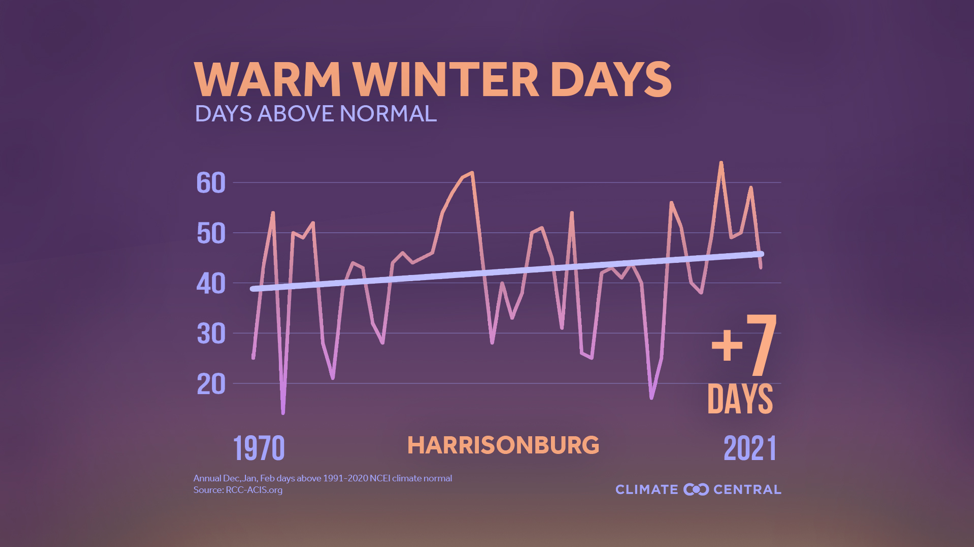
This isn’t just happening here in Virginia: winter is the most rapidly-warming season across the Southeast and most of the US since 1970. While winter will always have cold events, including record-breaking cold conditions, it’s clear winter just isn’t as cold as it used to be 50 years ago!
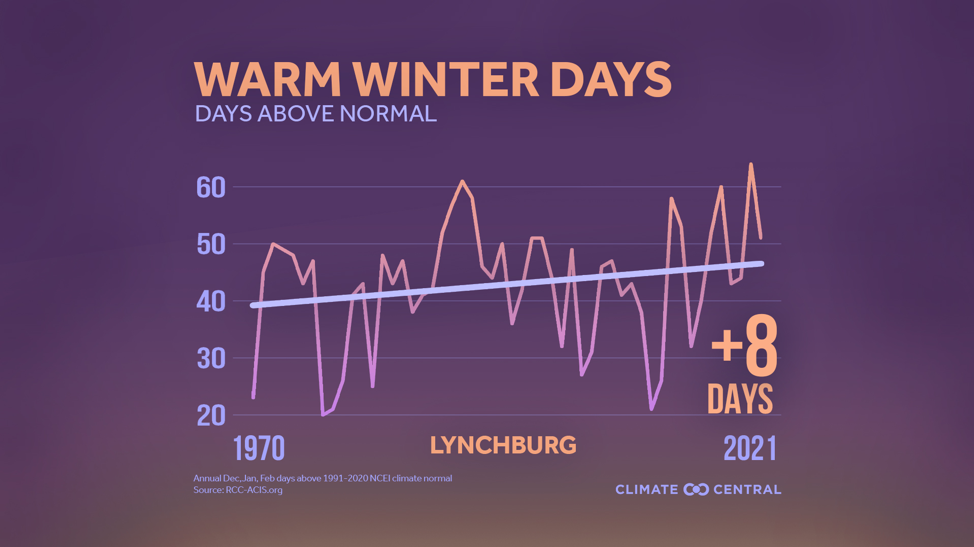
Warmer Decembers, Januarys and Februarys may sound great for the "Summer Madness" fans among us, but as Muddy Waters sang, they give climate scientists the "Cold Weather Blues." Warmer winters have consequences for our health and threaten our regional economy in a number of ways.
- Mosquitoes that can carry disease can now survive in new, warmer habitats.
- Warmer winters make it harder to keep snow around in the mountains, threatening the winter recreation industry.
- The Southeast’s agricultural communities rely on winter chill and consistent seasonal temperatures to ensure a viable fruit crop in the spring. In 2017, unpredictable winter and spring weather brought on over $1 billion—with a B!—in damage to fruit crops.
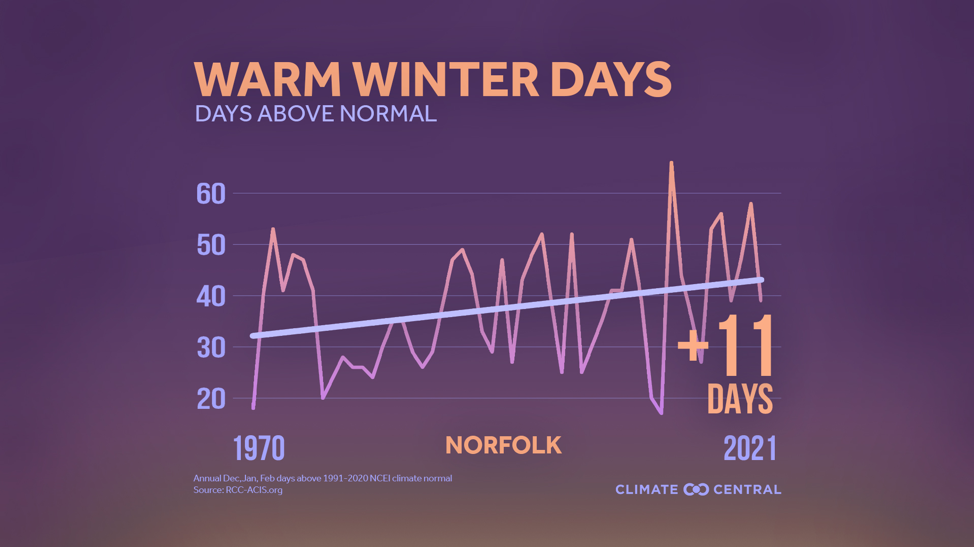
So what can you do with this information now that you have it? Share it! No, seriously, this isn’t a ploy to get more people to read our blog. Sharing your stories about how climate change impacts you with friends and family is one of the main ways we can act on climate change, believe it or not!
Spring will be here before you know it so go ahead and start on that playlist now. We recommend "Here Comes the Sun" by The Beatles and "End of the Season" by The Kinks!
